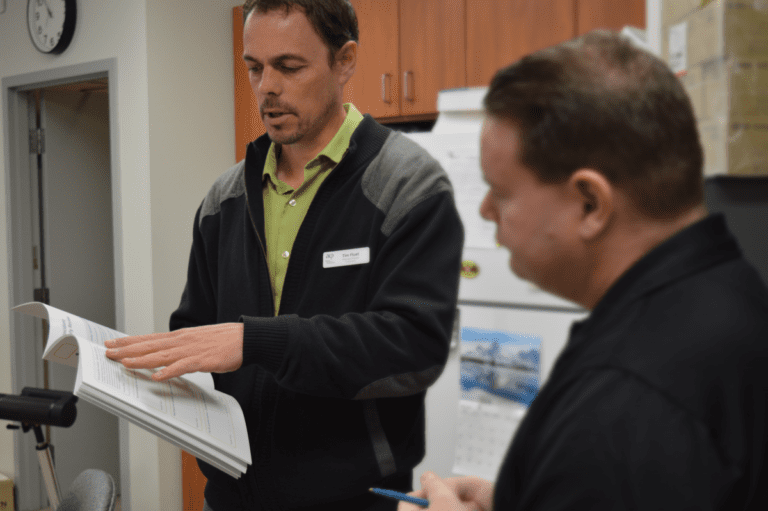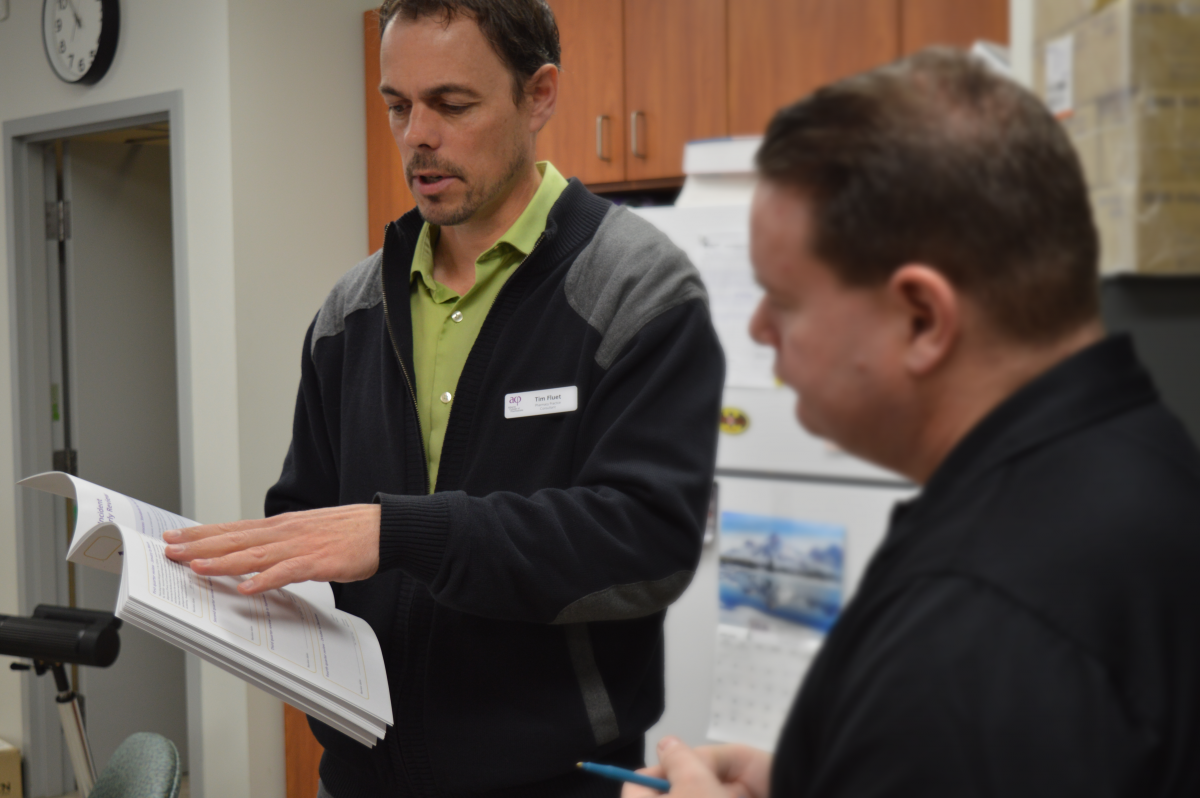
Appropriate assessments are the foundation of clinical care in pharmacy. In fact, having pharmacists provide appropriate assessments at each patient encounter is one ACP Council’s five strategic goals.
So how do we make this happen?
Gathering data

“You need to gather sufficient information about the patient to assess and make clinical decisions effectively,” said Tim Fluet, one of the ACP practice consultants who visit Alberta pharmacies to inspect and provide support. “The quality of the assessment is really dependent on the data gathered.”
Having a connection with the patient is vital to gathering information.
“Engage with them whenever you can, get their feedback, and ask questions,” noted Tim. “Make yourself accessible to your patients as much as you can.”
Referencing Netcare is also crucial to providing patient assessments. Pharmacists should gather Netcare information throughout the day to assess for efficacy, adherence, and safety.
Utilize technicians, work flow
Technicians can also contribute by gathering information for the pharmacist, as long as pharmacists evaluate the information gathered to ensure that it’s comprehensive and use the information to assess the patient.
“That’s something I’m seeing in practice more often now—technicians playing a bigger role in gathering data to assist pharmacists with their assessments,” Tim said.
To get into a good assessment routine, Tim recommends a systematic process. Templates or assessment forms are often used to ensure enough information is gathered in a consistent way. Many software applications also facilitate this process. Have discussions with your pharmacy team to develop processes that works best in your pharmacy.
“It’s really important for the licensee and pharmacy team to work together to establish a high level of assessment quality,” he said. “It can be a challenge in a busy work environment, but you really owe it to your patients to provide the best care possible.”
Progress for Albertans
Tim also said the practice consultants are seeing some good progress when it comes to assessments, but there is still work to be done. It wasn’t long ago that asking the indication for a new prescription would have seemed excessive. Now it’s become a normal expectation for pharmacists and their patients.
“If you go back a few years our focus was on counselling,” he said. “We discussed potential side effects and how to take the medication. Now we’re making clinical decisions to improve patient care. That’s a huge step.”
Pharmacists are also getting better at putting the patient first by taking the time to listen and finding out what matters to them.
“It used to be, ‘I know what’s best for you,’” Tim said. “Now, it’s, ‘What would you like me to help you with?’”




